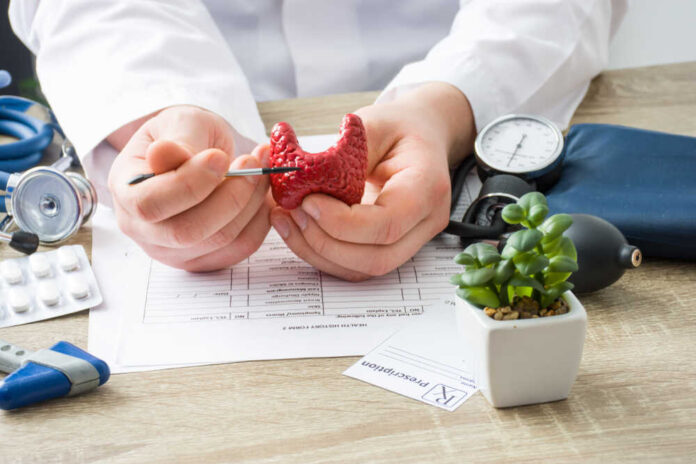
The thyroid gland is an important part of our endocrine system, located in the neck and responsible for producing hormones that regulate our metabolism, growth, and development.
However, sometimes things can go wrong with our thyroid and it can lead to different forms of thyroid dysfunction, such as hypothyroidism, hyperthyroidism, and thyroid cancer.
Symptoms of Hypothyroidism
Hypothyroidism is a condition in which the thyroid gland does not produce enough hormones. This can lead to a number of symptoms, such as:
● Fatigue
● Weight gain
● Cold intolerance
● Constipation
● Dry skin and hair
● Depression
● Memory loss
● Menstrual irregularities
● Elevated cholesterol levels
Symptoms of Hyperthyroidism
Hyperthyroidism is an overactive thyroid condition in which the thyroid gland produces too much hormone. This can lead to a number of symptoms such as:
● Rapid and unexpected weight changes
● Increased appetite
● Heat intolerance
● Fatigue
● Muscle weakness
● Nervousness and irritability
● Rapid heartbeat and palpitations
● Tremors in the hands
● Sweating
● Insomnia
● Enlarged thyroid gland (goiter)
● Frequent bowel movements
Hyperthyroidism is less common than hypothyroidism, but it may also be more difficult to treat. While hypothyroidism typically develops slowly and gradually, hyperthyroidism can progress rapidly and become difficult to control.
Symptoms of Thyroid Cancer
Thyroid cancer is a type of cancer that develops in the thyroid gland. It is significantly less common than hypothyroidism, but may sometimes result in more serious complications.
Thyroid cancer can be difficult to identify as the symptoms are similar to other conditions. And in many cases, thyroid cancer may present with no obvious symptoms at all.
However, some common signs and symptoms of thyroid cancer include:
● A lump or swelling in the neck
● Hoarseness or change in voice
● Difficulty swallowing
● Pain in the neck or throat
● Enlarged lymph nodes
It is important to note that these symptoms do not necessarily mean that you have thyroid cancer, but if you are experiencing any of these symptoms, it is important to speak with a healthcare professional.
Early detection and diagnosis are key to a successful outcome in treating thyroid cancer.
Diagnosis and Treatment
Thyroid conditions are diagnosed through a combination of blood tests and imaging studies.
Treatment for hypothyroidism typically involves taking a daily hormone replacement medication. Thyroid cancer, on the other hand, is treated through surgery, radiation, and/or chemotherapy.






















